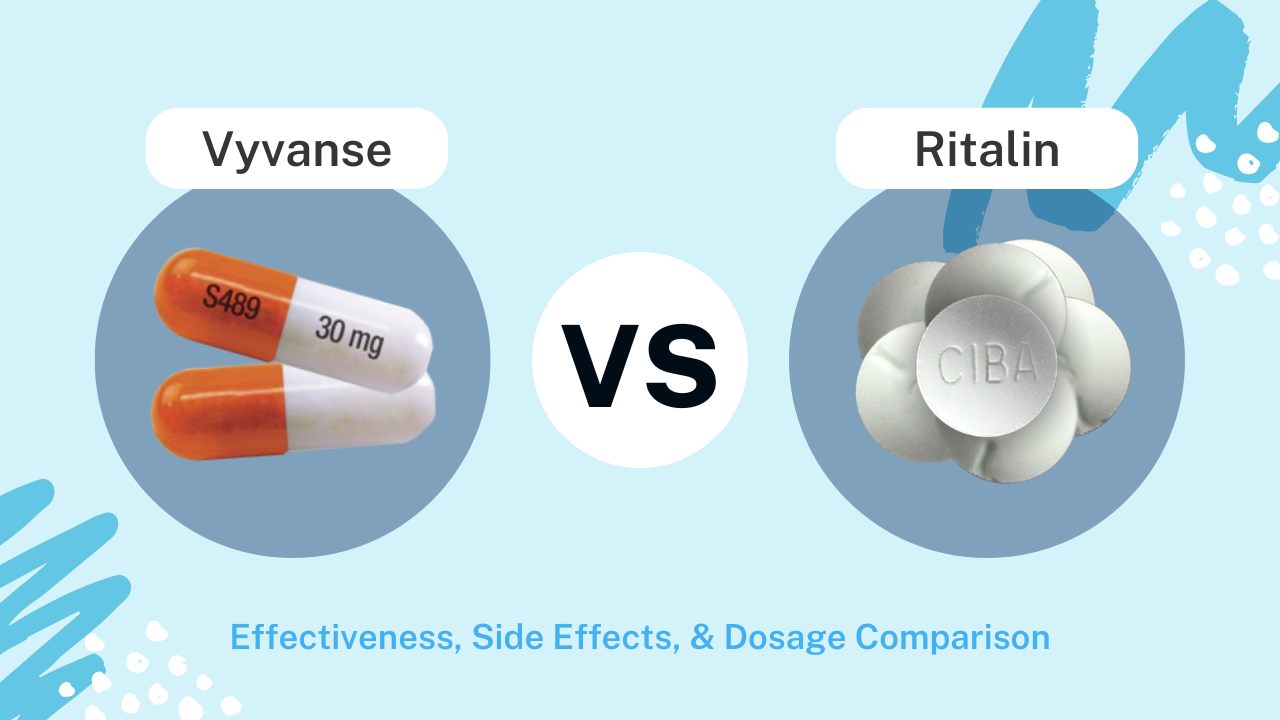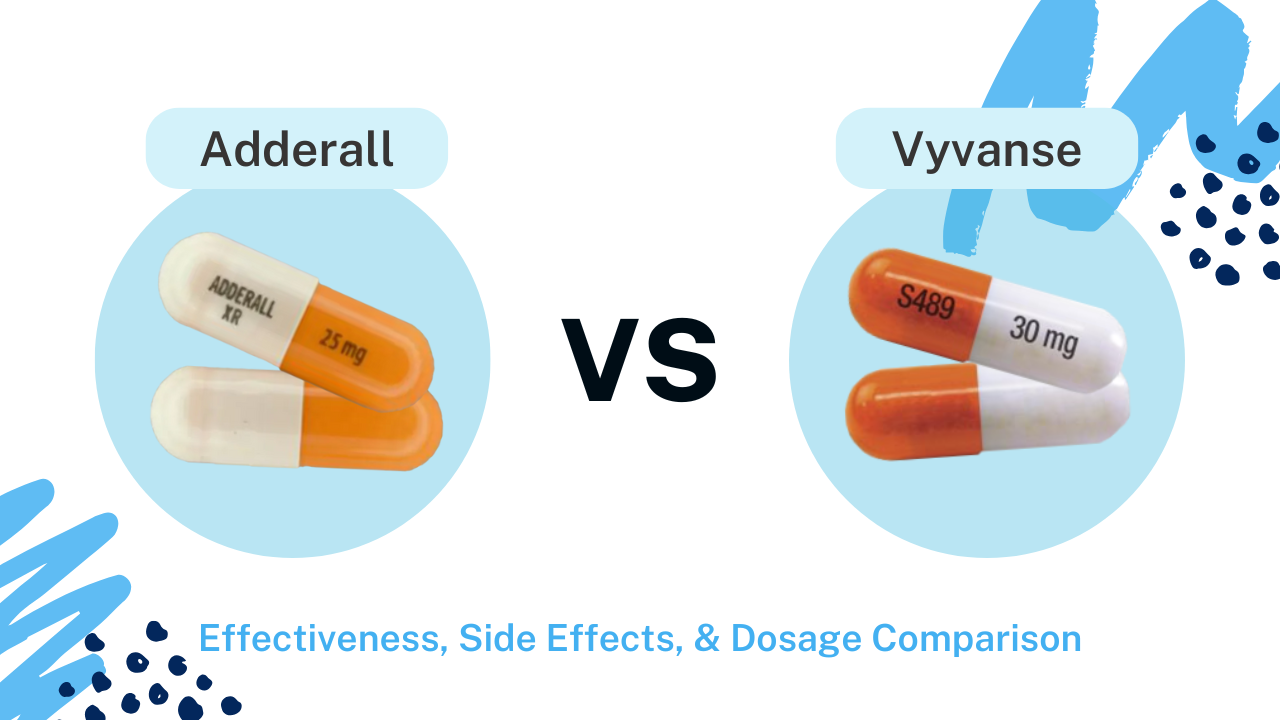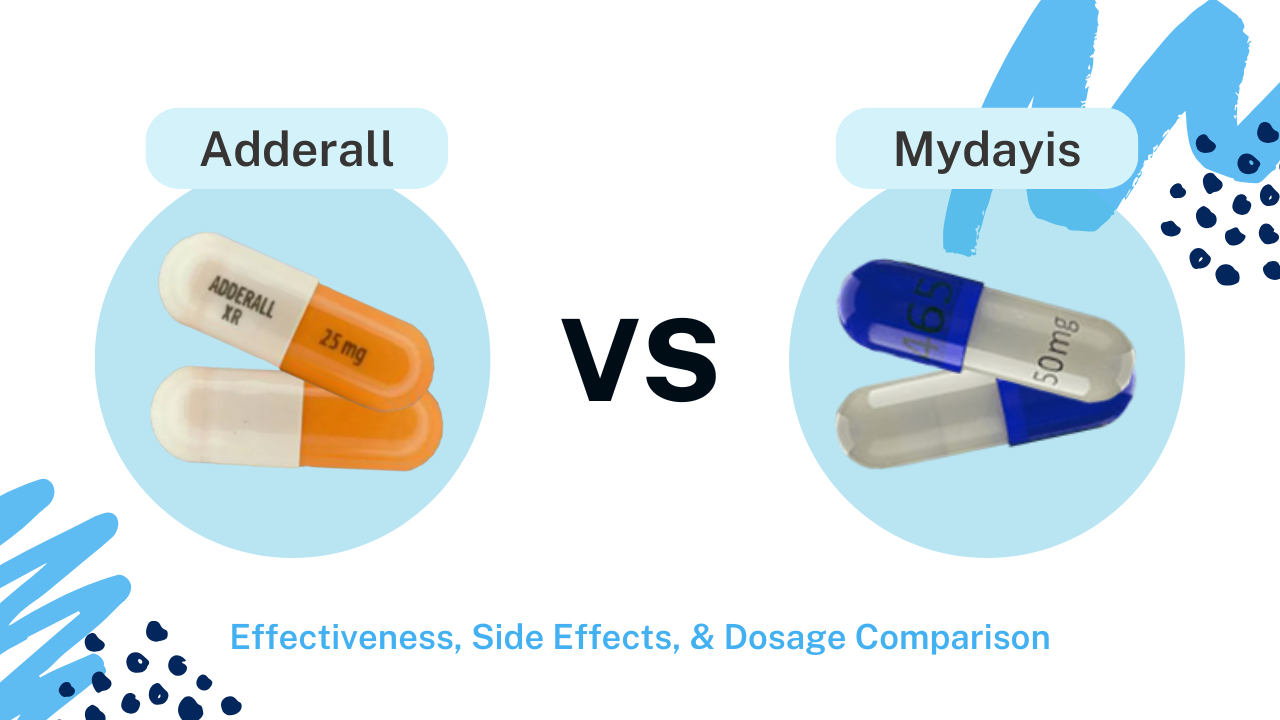Same Day Online ADHD Diagnosis
ADHD assessment?
Acknowledging potential ADHD symptoms can be a life-changing revelation and a challenge. Symptoms might overlap, doubts may arise, and seeking an ADHD evaluation can seem intimidating.
But we’re here to help—from understanding symptoms to finding the right specialist, this guide details how to get diagnosed with ADHD. While it’s ultimately at the mental health clinician’s discretion to diagnose any condition, we’ll help you understand what to expect during the diagnostic process, whether with ADHDAdvisor.org or elsewhere.
What Are the Common ADHD Symptoms?
Attention-deficit/hyperactivity disorder (ADHD), a type of developmental disorder, can cause numerous symptoms with varying severity. Some diagnosed patients may show subtle or only a few signs, while others can have several that coincide with additional mental health conditions, such as anxiety, depression, or learning disabilities. But, in general, all ADHD symptoms fall under one of three presentation classifications:
- Inattention
- Hyperactivity & Impulsivity
- Combined Presentation
While symptoms are most usually seen in children twelve and under, adults who show signs based on these classifications may have some type of ADHD, depending on the number of symptoms, when they began, and their persistence.
Inattention
Those with an inattentive type of ADHD struggle with sustaining attention or focus. Common symptoms may include:
- Difficulty starting or concentrating on time-intensive tasks
- Misplacing important items, like a purse or wallet
- Challenges with organization and time management
- Forgetting responsibilities, commitments, or appointments
Hyperactivity & Impulsivity
Hyperactive and impulsive individuals are more inclined to feel restless or find it difficult to slow down their thoughts or actions. Common symptoms may include:
- Trouble staying quiet or content when needed, such as during a meeting
- Constantly moving, fidgeting, or getting up from one’s seat
- Difficulty winding down or transitioning to personal activities
- Frequently talking, interrupting, or intruding on others
- Acting on impulse and ignoring risk
- Quick-tempered, easily irritable, or gets impatient while waiting
Combined Presentation
Some individuals can show combined symptoms of ADHD mentioned above, including inattention, hyperactivity, and impulsivity. While the common signs of those who have a combined form of ADHD vary, in any case, they’ll have tendencies to struggle with sustaining focus and controlling impulsive or hyperactive behavior.
How the Adult ADHD Diagnostic Process Works
Traditionally, anyone seeking an ADHD diagnosis or wanting to rule out other conditions would see their primary care provider or a psychiatrist. But in today’s day and age, patients can also consult a clinician virtually with mental health services like ADHDAdvisor.org.
Below, you’ll find a detailed step-by-step guide explaining how the ADHD diagnostic process works, both if you meet with a specialist in person or use a telemedicine service like ours.
Show Symptoms
According to the National Institute of Mental Health (NIMH) and the Centers for Disease Control and Prevention (CDC), ADHD often manifests in childhood and persists into adulthood. Patients who didn’t get diagnosed as a child but seek support later in life must have shown at least five recurring signs of inattention, hyperactivity, impulsivity, or a combination for a minimum of six months. Additionally, these symptoms must occur in (and directly interfere with) at least two aspects of the adult’s life, such as work, relationships, or specific activities.
Find a Provider
The next step is finding a licensed mental health professional, specifically with expertise in ADHD, who can diagnose and treat mental health conditions. Such professionals can include doctors of medicine (MD), doctors of osteopathic medicine (DO), or psychiatric-mental health nurse practitioners (PMHNP).
Your primary care doctor may be able to help, or they can issue a referral to a specialist in your area, likely a licensed therapist or a professional specializing in mental health with the credentials previously mentioned. You can also review your insurance provider’s in-network specialists or reach out to a representative to see if they can locate a clinician.
However, if you don’t have insurance or a primary care doctor, can’t schedule an appointment in time, or want a more convenient method to get holistic care, you can also use a telemedicine service like ours as long as it has licensed providers in your state. Depending on availability in your area, ADHDAdvisor.org offers appointments seven days a week, mornings to evenings, with same-day flexibility.
Take an Initial Assessment
If you want to get started with ADHDAdvisor.org, take our initial assessment so we can get a better idea of your situation and if we’re able to help. It takes less than five minutes and asks a few questions about your symptoms, how long you’ve noticed them, and when you’d like to book a virtual appointment. While the initial assessment isn’t meant to diagnose ADHD or recommend a treatment plan, it helps our team understand your unique circumstance and gives your medical provider additional context before the clinical evaluation.
Undergo a Clinical Evaluation
Regardless of where you seek support, a clinician will conduct a comprehensive evaluation to determine the root cause of your symptoms. They will ask questions, review your responses, and weigh them against a diagnostic criteria known as the Diagnostic and Statistical Manual of Mental Disorders (DSM-5), the latest edition of the American Psychiatric Association’s reference book. Additionally, your clinician may do the following during the evaluation:
- Gather routine information, such as your family and individual medical history, recent lifestyle changes, alcohol and substance use, current medications, and what symptoms have developed.
- Order a physical exam, which can involve various tests to further assess your current health or rule out physical causes for your symptoms.
- Use ADHD rating scales, such as the World Health Organization Adult ASRS, CAARS, Wender Utah, or other rating scales, to measure the type and severity of your symptoms.
- If necessary, schedule a second evaluation depending on their findings and the appointment length, or rule out other mental health conditions before confirming the diagnosis and recommending treatment.
Because other conditions might coexist with ADHD, such as anxiety, depression, or autism spectrum disorder, the clinician must verify your symptoms aren’t likely caused by them or result from a psychotic disorder like schizophrenia. But if there’s no better explanation than ADHD, your clinician has the discretion to officially diagnose your condition and recommend treatment.
Why an Accurate ADHD Diagnosis Matters
ADHD has profound effects on the lives of those who have it, influencing everything from relationships to productivity, mood, and self-perception. Yet, it’s not as straightforward to diagnose as something like a broken bone or torn ligament that may just require an X-ray or MRI to measure the severity. ADHD varies in everyone who has it; some have accompanying mental health conditions that require specialized treatment, others only notice a slight effect in their daily lives, and the same treatment won’t work for everyone.
Because of the variability surrounding ADHD, it’s essential to exercise caution when seeking a diagnosis. As witnessed by the growing ADHD medication shortage, adults are getting diagnosed in larger numbers than ever before—and stimulants are often the first recommendation. Although it may seem tempting to self-diagnose and determine your best treatment plan, leaving it to a qualified medical provider’s expertise is the most effective way to ensure you get proper support.
And most importantly, honesty and transparency are key during the diagnosis process. Misleading a clinician by reporting false symptoms can lead to receiving improper treatment, failing to address the actual problem, and potentially leading to further complications.
ADHD Post-Diagnosis Steps
After diagnosing ADHD, patients will talk with their provider about what type of ADHD they have and the proper treatment plan. After committing to treatment, patients will likely check in with their clinician to monitor progress and make adjustments as needed.
Begin Treatment
Depending on the diagnosis, treatment plans can include medication, forms of therapy or professional coaching, lifestyle changes, or a combination.
Medication
ADHD medications are one of the most common treatments for newly diagnosed patients. These include the following:
- Stimulants: This type of medication increases dopamine and norepinephrine levels in the brain and comes in immediate- and extended-release variants. Stimulants (like Adderall) are the most commonly prescribed medication for ADHD treatment but are considered controlled substances due to their potential for abuse.
- Non-stimulants: If it’s not safe for patients to take stimulants or they don’t find them effective, doctors may prescribe non-stimulants like Strattera, but this type of medication can take longer to start seeing results.
- Antidepressants: While not an FDA-approved treatment for ADHD, some doctors prescribe antidepressants to balance dopamine and norepinephrine levels or if the patient has another mental health condition.
Additionally, some clinicians may recommend patients try a combination of medications, including stimulants and non-stimulants. Similarly, certain patients might require medication and other treatments, such as therapy, lifestyle adjustments, or alternative remedies.
Therapy
Patients who prefer not taking medication or don’t find it effective are sometimes referred to a therapist or success coach to learn how to manage their symptoms. Whether they try cognitive behavioral therapy, success coaching, skills training, or support groups, these treatment options can help patients identify the root cause of their symptoms and develop healthy coping strategies.
Patients who require therapy won’t always meet at the same frequencies. Some may only need one session per month, while others require several every week. As patients improve, it’s possible to reduce their commitment or completely stop going to therapy if they’ve developed effective methods for managing their symptoms.
Additionally, patients who don’t receive an ADHD diagnosis but share similar tendencies may benefit from therapy and building healthier lifestyle skills.
Lifestyle Changes
Depending on the patient’s lifestyle and habits, it’s sometimes beneficial to make healthy changes to manage ADHD symptoms. This can include exercising more, cutting down on processed and unhealthy foods, finding a hobby, meditating, or journaling.
Lifestyle changes may be particularly effective for patients who don’t respond as well to medication or want additional strategies to improve. While the best changes vary from person to person, any kind of positive change for the body—like a nutritious diet, more sleep, or regular exercise—can have profound effects on regulating mood, improving productivity, and building discipline.
Monitor Progress
Regardless of which treatment type a clinician recommends to their patient, there’s a good chance they’ll want to continue checking in and monitoring their care. This is a given for patients who need medication since they’ll need to request refills, especially if they require stimulants with special prescription requirements.
How to Find a Specialist for ADHD Diagnosis and Treatment
While modern medicine and technology haven’t produced a cure for ADHD, they’ve certainly made finding support easier than ever before. Here are some of the most accessible methods for anyone to find a specialist:
- Visit ADHDAdvisor.org: If you seek holistic and convenient care, our team of fully licensed medical providers and therapists is here to assist. After taking a brief assessment, you can connect with a qualified professional who will walk you through the diagnosis process, after which they create a personalized treatment plan if you get diagnosed. With virtual appointments, affordable monthly membership plans, and a complete offering of treatment services, ADHDAdvisor.org is your all-in-one service for comprehensive support.
- Ask your primary care doctor: Your primary care doctor may be able to diagnose and treat ADHD, but if not, they should at least know where you can find a specialist. Likewise, they can help transfer over medical records and assist with physical exams if necessary.
- Contact your insurance provider: Most insurance providers have a feature on their website to find mental health care specialists covered by your plan. But if you can’t find this feature, it might be worth contacting customer service to see if they can help you locate one.
- Ask friends, family, or trusted colleagues: If you know anyone who has ADHD or another mental health condition, they may be able to recommend a trusted medical provider they’ve worked with.
- Speak with a local health clinic: While this option will vary depending on where you live, several cities and towns have public health clinics with little to no cost for qualifying patients. While these are usually designed to offer basic medical care, such as check-ups or vaccinations, they might know of a specialist who can help.
Final Thoughts
Managing and living with ADHD is more than possible with the right support. While we ultimately recommend you try ADHDAdvisor.org, we hope this guide helped you understand what goes into the process of getting diagnosed with ADHD. We encourage you to be honest with your medical provider and go into the evaluation with an open mind, allowing them to make an accurate diagnosis and determine the proper treatment.
If you’re ready to move forward, take our initial health assessment and schedule an appointment to meet with a fully licensed medical provider. But even if you go a different route to get support, we wish you luck on your path to improvement.
Frequently Asked Questions About How to Get Diagnosed with ADHD
Still have questions about diagnosing ADHD? We’ve got answers below.
How do you get diagnosed with ADHD in adults?
Adults who think they may have ADHD must see a licensed medical provider to get an official diagnosis. They can visit their doctor, ask for a referral, or visit ADHDAdvisor.org to connect with a specialist. After conducting a clinical evaluation, the medical provider can determine if the adult has ADHD.
What are the 3 main symptoms of ADHD?
The three main symptoms of attention-deficit/hyperactivity disorder (ADHD) are inattentive, hyperactive-impulsive, and combined presentations. Patients who exhibit both inattentive and hyperactive-impulsive symptoms are characterized as having a combined form of ADHD.
Is it worth getting ADHD diagnosed?
Anyone who thinks they may have ADHD can certainly benefit from getting an official diagnosis. At a minimum, they can learn more about their condition and find a path to improvement, whether with medication, therapy, lifestyle changes, or a combination of treatments.
What does untreated ADHD look like?
Everyone with untreated ADHD will experience different symptoms and effects on their daily lives. Some may be more inattentive, disorganized, or forgetful, while others have trouble staying still, waiting their turn, or calming their thoughts. In some cases, those with untreated ADHD can exhibit all of these symptoms.
References
- https://www.nhs.uk/conditions/attention-deficit-hyperactivity-disorder-adhd/symptoms
- https://consultqd.clevelandclinic.org/adult-childhood-adhd-different-conditions
- https://www.nimh.nih.gov/health/publications/adhd-what-you-need-to-know
- https://www.cdc.gov/ncbddd/adhd/diagnosis.html
- https://my.clevelandclinic.org/health/articles/24291-diagnostic-and-statistical-manual-dsm-5
- https://www.nbcnews.com/health/mental-health/adderall-shortage-adhd-medication-2023-rcna99019
- https://my.clevelandclinic.org/health/treatments/11766-adhd-medication
- https://www.apa.org/ptsd-guideline/patients-and-families/cognitive-behavioral
- https://chadd.org/adhd-news/adhd-news-adults/your-lifestyle-will-determine-your-future











.webp)











